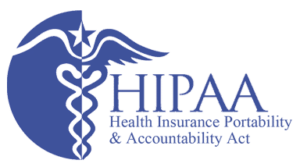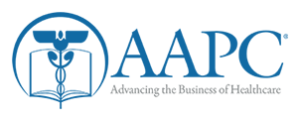Continuation to updates in part1 and part2:
On November 2, 2021, the Centers for Medicare & Medicaid Services (CMS) issued a final rule that includes updates on policy changes for Medicare payments under the Physician Fee Schedule (PFS), and other Medicare Part B issues, on or after January 1, 2022.
PAYMENT PROVISIONS:
Determination of ASP for Certain Self-administered Drug Products:
Section 405 of the CAA requires the Office of Inspector General (OIG) to conduct periodic studies on non-covered, self-administered versions of drugs or biologicals that are included in the calculation of payment under section 1847A of the Social Security Act. This provision permits CMS to apply a payment limit calculation methodology (the “lesser of” methodology) to applicable billing codes, if deemed appropriate. That is, the Medicare payment limit for the drug or biological billing code would be the lesser of: (1) the payment limit determined using the current methodology (where the calculation includes the ASPs of the self-administered versions), or (2) the payment limit calculated after excluding the non-covered, self-administered versions. CMS finalized the “lesser of” methodology for drug and biological products that may be identified by future OIG reports.
Section 405 of the CAA also requires that beginning July 1, 2021, the ASP-based payment limit for billing codes representing Cimzia® (certolizumab pegol) and Orencia® (abatacept) as identified in a July 2020 OIG report adhere to the “lesser of” methodology. CMS has applied this methodology for these billing codes beginning in the July 2021 ASP Drug Pricing files.
Part B Drug Payment for Section 505(b)(2) Drugs:
Some drugs approved through the pathway established under section 505(b)(2) of the Federal Food, Drug, and Cosmetic Act share similar labeling and uses with generic drugs that are assigned to multiple source drug codes. In the CY 2022 PFS proposed rule, CMS solicited comment on a decision framework under which certain section 505(b)(2) drug products could be assigned to existing multiple source drug codes. This approach would be applied to section 505(b)(2) drug products where a billing code descriptor for an existing multiple source code describes the product and other factors, such as the product’s labeling and uses, are similar to products already assigned to the code. The framework approach is consistent with the concept of paying similar amounts for similar services and with efforts to curb drug prices. CMS received feedback from stakeholders in response to the comment solicitation and will continue to evaluate this approach.
Clinical Laboratory Fee Schedule: Laboratory Specimen Collection Fee and Travel Allowance:
The Clinical Laboratory Fee Schedule (CLFS) provides for a nominal fee for specimen collection for laboratory testing and a fee to cover transportation and personnel expenses (generally referred to as the travel allowance) for trained personnel to collect specimens from homebound patients and inpatients (except hospital inpatients). The travel allowance is paid only when the nominal specimen collection fee is also payable.
In an effort to be as expansive as possible within the current authorities to make diagnostic testing available to Medicare beneficiaries during the COVID-19 PHE, we changed the Medicare payment rules to provide payment to independent laboratories for specimen collection from beneficiaries who are homebound or inpatients (not in a hospital) for COVID-19 clinical diagnostic laboratory tests (CDLTs) under certain circumstances and increased payments from $3-5 to $23-25. Although the increased specimen collection fees for COVID-19 CDLTs will end at the termination of the COVID-19 PHE, in the CY 2022 PFS proposed rule, we sought comments on our policies for specimen collection fees and the travel allowance as we consider updating these policies in the future through notice and comment rulemaking.
Appropriate Use Criteria (AUC) Program:
CMS finalized our proposal to begin the payment penalty phase of the AUC program on the later of January 1, 2023, or the January 1 that follows the declared end of the PHE for COVID-19. This flexible effective date is intended to take into account the impact that the PHE for COVID-19 has had and may continue to have on practitioners, providers and beneficiaries. Previously, the payment penalty phase of the AUC program was set to begin January 1, 2022.
Pulmonary Rehabilitation:
CMS proposed to expand coverage of outpatient pulmonary rehabilitation services, paid under Medicare Part B, to beneficiaries who were hospitalized with COVID-19 and experience persistent symptoms, including respiratory dysfunction, for at least four weeks after hospitalization. We finalized coverage for outpatient pulmonary rehabilitation services, paid under Medicare Part B, to beneficiaries who have had confirmed or suspected COVID-19 and experience persistent symptoms that include respiratory dysfunction for at least four weeks.
Medicare Shared Savings Program:
CMS finalized a longer transition for Accountable Care Organizations (ACOs) to prepare for reporting electronic clinical quality measures/Merit-based Incentive Payment System clinical quality measures (eCQM/MIPS CQM) under the Alternative Payment Model (APM) Performance Pathway (APP), by extending the availability of the CMS Web Interface collection type for an additional three years, through performance year (PY) 2024. This policy responds to ACOs’ concerns about the transition to all-payer eCQM/MIPS CQMs, including aggregating all-payer data across multiple health care practices that participate in the same ACO and across multiple electronic health record (EHR) systems.
ACOs accepting performance-based risk must establish a repayment mechanism (i.e., escrow, line of credit, surety bond) to assure CMS that they can repay losses for which they may be liable upon reconciliation. CMS finalized revisions to the repayment mechanism arrangement policy to reduce by 50 percent the percentage used in the existing methodology for determining the repayment mechanism amount. We also specified how we identify the number of assigned beneficiaries used in the repayment mechanism amount calculation and the annual repayment mechanism amount recalculation. We also finalized modifications to the threshold for determining whether an ACO is required to increase its repayment mechanism amount during its agreement period. These changes will result in lower required initial repayment mechanism amounts and less frequent repayment mechanism amount increases during an ACO’s agreement period, thereby lowering potential barriers for ACOs’ participation in two-sided models and increasing available resources for investment in care coordination and quality improvement activities.
Updates to the Open Payments Financial Transparency Program:
Open Payments is a national transparency program that requires drug and device manufacturers and group purchasing organizations (known as “reporting entities”) to report payments or transfers of value to physicians, teaching hospitals, and other providers (known as “covered recipients”) to CMS. CMS finalized as proposed several changes to the Open Payments program to support the usability and integrity of the data for the public, researchers, and CMS, including the following:
Adding a mandatory payment context field for records to teaching hospitals;
Adding the option to recertify annually even when no records are being reported;
Disallowing record deletions without a substantiated reason;
Adding a definition for a physician-owned distributorship as a subset of applicable manufacturers and group purchasing organizations and updating the definition of ownership interest;
Requiring reporting entities to update their contact information;
Disallowing publication delays for general payment records;
Clarifying the exception for short-term loans; and
Removing the option to submit and attest to general payment records with an “Ownership” Nature of Payment category.
Medicare Provider Enrollment:
CMS finalized all of its proposed provider enrollment regulatory provisions. These involve:
Exempting independent diagnostic testing facilities (IDTF) that only perform services that do not require direct or in-person beneficiary interaction, treatment, or testing from several of our IDTF supplier standards in 42 CFR § 410.33.
Expanding our authority to deny or revoke a provider’s or supplier’s Medicare enrollment in order to protect the Medicare program and its beneficiaries.
Establishing specific rebuttal procedures in regulation for providers and suppliers whose Medicare billing privileges have been deactivated.
Medicare Ground Ambulance Data Collection System:
CMS finalized our proposed changes to the Medicare Ground Ambulance Data Collection System including:
Finalizing our proposal for a new data collection period beginning between January 1, 2023, and December 31, 2023, and a new data reporting period beginning between January 1, 2024, and December 31, 2024, for selected ground ambulance organizations in year 3;
Revisions to the timeline for when the payment reduction for failure to report will begin aligning the timelines for the application of penalties for not reporting data with our new timelines for data collection and reporting and when the data will be publicly available beginning in 2024; and
Revisions to the Medicare Ground Ambulance Data Collection Instrument. These changes and clarifications to the instrument will improve its clarity and make the instrument less burdensome for respondents to complete.
For more information, visit: https://www.cms.gov/newsroom/fact-sheets/calendar-year-cy-2022-medicare-physician-fee-schedule-final-rule




